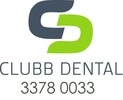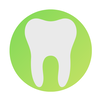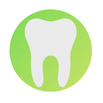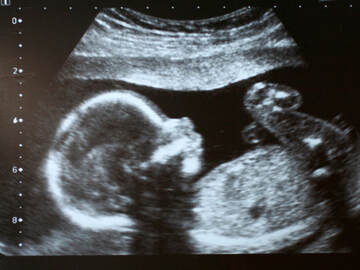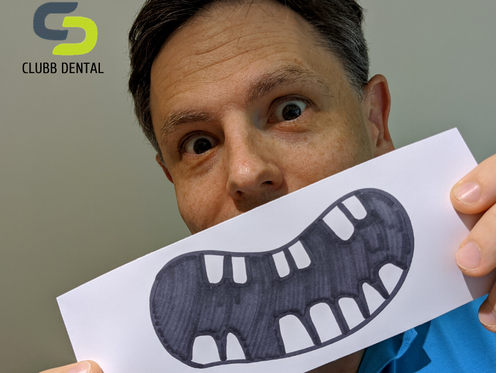LOOKING AFTER YOUR TEETH WHILE PREGNANT
Pregnancy is an incredible journey that brings joy, anticipation, and significant changes to a woman's body.
Amidst the excitement, it's crucial not to overlook your dental health.
Pregnancy hormones can make you more susceptible to oral health issues, such as gum disease and tooth decay.
Proper dental care during pregnancy is essential for both your well-being and your baby's development.
In this blog, we will explore the importance of maintaining good oral hygiene, seeking professional dental care, and adopting healthy habits to protect your teeth and gums while pregnant.
Amidst the excitement, it's crucial not to overlook your dental health.
Pregnancy hormones can make you more susceptible to oral health issues, such as gum disease and tooth decay.
Proper dental care during pregnancy is essential for both your well-being and your baby's development.
In this blog, we will explore the importance of maintaining good oral hygiene, seeking professional dental care, and adopting healthy habits to protect your teeth and gums while pregnant.
TRYING TO GET PREGNANT
Pregnancy can be hard on your teeth and gums so it is important to be in a good dental routine even before you are pregnant.
- Brushing your teeth at least twice a day with fluoride toothpaste.
- Cleaning between your teeth with floss or interdental brushes once a day.
- Eating a healthy diet and limiting food and drinks high in added sugar.
- Visiting your dentist every 6 to 12 months.
ALWAYS TELL YOUR DENTIST THAT YOU ARE PREGNANT
We take take extra precautions when they know you’re pregnant to ensure your care is safe for you and your baby.
Untreated decay and gum disease can lead to infections, which can be a risk to you and your baby.
Common concerns about dental treatment during pregnancy include using local anaesthetics and dental x-rays.
When necessary we will discuss these to ensure they are safe during your pregnancy.
If you have concerns, speak to us about your circumstances.
You can see the dentist at any stage of your pregnancy.
Some women find it is most comfortable during the second trimester, when morning sickness has reduced and before the increased size of the baby makes them uncomfortable to lay flat on the dental chair.
Untreated decay and gum disease can lead to infections, which can be a risk to you and your baby.
Common concerns about dental treatment during pregnancy include using local anaesthetics and dental x-rays.
When necessary we will discuss these to ensure they are safe during your pregnancy.
If you have concerns, speak to us about your circumstances.
You can see the dentist at any stage of your pregnancy.
Some women find it is most comfortable during the second trimester, when morning sickness has reduced and before the increased size of the baby makes them uncomfortable to lay flat on the dental chair.
EXTRA ISSUES FOR PREGNANT LADIES
Extra dental health problems during pregnancy can include:
GUM DISEASE & PREMATURE BIRTH
A couple of major studies have shown that there is a link between gum disease and premature birth. Pregnant women with chronic gum disease were 4-7 times more likely to deliver prematurely (before week 37) and have underweight babies than mothers with healthy gums.
Mothers with the most severe periodontal disease delivered the most prematurely, at 32 weeks. It’s unclear whether treating gum disease reduces the risk of preterm birth.
MORNING SICKNESS
If morning sickness is keeping you from brushing your teeth, change to a bland-tasting toothpaste during pregnancy.
Rinse your mouth out with water or a mouth rinse if you suffer from morning sickness and have bouts of frequent vomiting.
Do not brush your teeth for at least 30 minutes after vomiting to protect the enamel on your teeth.
CRAVING SUGARY FOODS
Limit sugary foods, maintain proper oral hygiene, and visit your dentist regularly for preventive care.
If you are craving sugary foods try to eat them at one time and then brush your teeth after, rather than grazing on them all day.
PREGNANCY GUM TUMORS
Some women develop deep red round growths on the gum line, these areas bleed easily - these are called pregnancy tumors but don't be concerned as they are NOT cancerous.
For most women the growths disappear on their own after the baby is born.
Occasionally the growths can make speaking and eating difficult due to their location in the mouth and these can be removed using local anaesthetic.
GUM DISEASE & PREMATURE BIRTH
A couple of major studies have shown that there is a link between gum disease and premature birth. Pregnant women with chronic gum disease were 4-7 times more likely to deliver prematurely (before week 37) and have underweight babies than mothers with healthy gums.
Mothers with the most severe periodontal disease delivered the most prematurely, at 32 weeks. It’s unclear whether treating gum disease reduces the risk of preterm birth.
MORNING SICKNESS
If morning sickness is keeping you from brushing your teeth, change to a bland-tasting toothpaste during pregnancy.
Rinse your mouth out with water or a mouth rinse if you suffer from morning sickness and have bouts of frequent vomiting.
Do not brush your teeth for at least 30 minutes after vomiting to protect the enamel on your teeth.
CRAVING SUGARY FOODS
Limit sugary foods, maintain proper oral hygiene, and visit your dentist regularly for preventive care.
If you are craving sugary foods try to eat them at one time and then brush your teeth after, rather than grazing on them all day.
PREGNANCY GUM TUMORS
Some women develop deep red round growths on the gum line, these areas bleed easily - these are called pregnancy tumors but don't be concerned as they are NOT cancerous.
For most women the growths disappear on their own after the baby is born.
Occasionally the growths can make speaking and eating difficult due to their location in the mouth and these can be removed using local anaesthetic.
If you experience any oral health problems during pregnancy, don't ignore them.
Seek prompt dental care to prevent potential complications.
Seek prompt dental care to prevent potential complications.
If you have any further questions regarding Toothaches or any other dental question please give us a call or send us a message, we would love to help.
If you have loved this blog and would like to receive more straight into your inbox click below.
Services |
Company |
|
